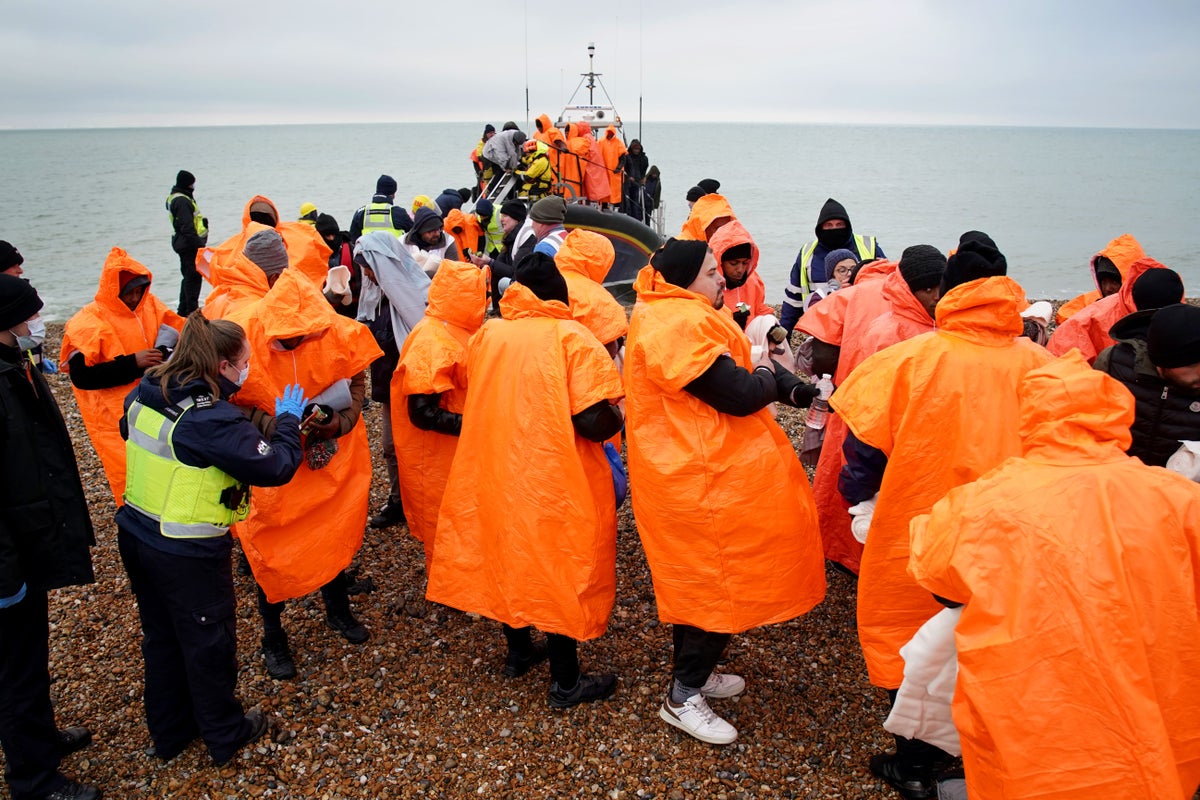
Here are some of the key statistics for people arriving in the UK after crossing the English Channel in small boats:
– How many people have made the crossing?
The number has increased steadily each year since 299 people were detected making the journey in 2018.
There were 1,843 crossings in 2019, 8,466 in 2020 and 28,526 in 2021, according to the Home Office.
The provisional total for 2022 – 45,756 – is 60% higher than the figure for 2021.
2022 saw both a record daily number of crossings (1,295 on August 22) and a record for monthly crossings (8,631 for August).
Of the 45,756 people who were provisionally detected in 2022, more than 40,000 crossed since the Government announced on April 14 that it had agreed a deal to deport some asylum seekers to Rwanda.
The first deportation flight – due to take off on June 14 – was grounded amid a series of legal challenges.
– Who are the arrivals?
In 2021 more than half of those detected crossing the Channel were of Iranian or Iraqi nationality (30% and 22% of the total respectively).
A further 10% were Eritrean, 9% were Syrian and 5% were from Afghanistan.
2022 saw a change in the breakdown of nationalities.
Across the first nine months of 2022, Albanians accounted for 35% of arrivals – the highest proportion of any group.
Afghans accounted for 15%, Iranians 11% and Iraqis 10%.
These figures are based on the total number of arrivals for whom nationality has been recorded by the Home Office.
– How many are making the crossing per boat?
The average has risen steadily since the start of 2021.
In 2018 there were fewer than 10 people per boat, while in 2019 and 2020 the figure tended to fluctuate between single figures and the high teens.
From 2021 the average started to increase, reaching 20 in March and 30 in August.
It reached 40 people per boat in June 2022 and provisionally hit 48 in December.
– How many apply for asylum?
Of the 35,345 people who arrived in small boats between October 1 2021 and August 31 2022, 90% (31,891) applied for asylum, the Home Office said.
A total of 29,049 applications were made by these arrivals – some applications will have included more than one person, such as a dependant – and of this figure, just 139 had received an initial decision by the time the latest data was published in November.
Some 381 applications had been withdrawn, but the vast majority – 28,529 – were still awaiting a decision.
Of the 139 who received a decision, 46 were granted refugee status or another type of leave to remain, 57 were refused, and 36 were not considered on “third country grounds” – meaning the UK Government instead sought the person’s removal to a safe third country because the applicant had a connection to that country where they could “reasonably have been expected to claim asylum” before reaching the UK.







